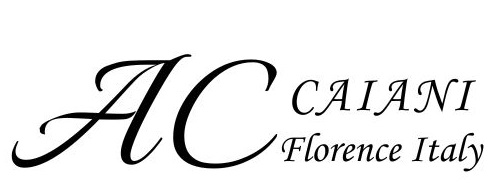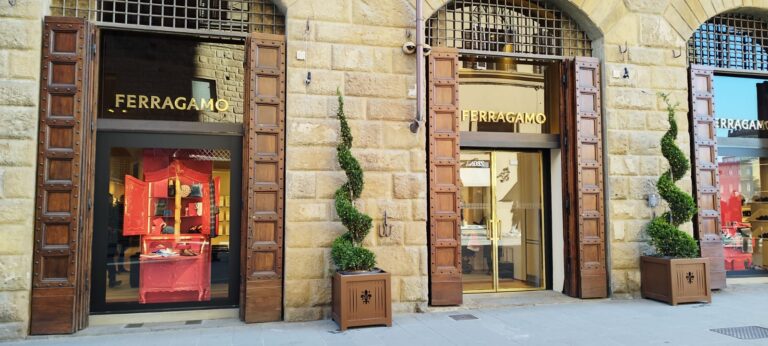👗 Fashion and Fashion Studies in Florence: Where Tradition Meets Innovation
Florence is not only a cradle of Renaissance art—it’s also a thriving hub of fashion. With centuries of craftsmanship and design excellence, the city offers a unique blend of heritage and modern creativity. Whether you’re a fashion lover or an aspiring designer, Florence is the place where style and study come together.
🏛️ Historical Significance: A Legacy Woven in Silk and Leather
Fashion in Florence has deep roots. During the Renaissance, the city was a center for luxury textiles and fine tailoring.
- The Medici family played a key role, setting trends that spread across Europe.
- Florence also became famous for its leather craftsmanship, producing bags, shoes, and accessories with unmatched quality.
Even today, this legacy continues to shape the city’s fashion identity.
🧵 The Modern Fashion Scene: Vibrant, Global, and Ever-Evolving
Florence remains at the forefront of fashion, hosting major events and nurturing creative talent.
✨ Pitti Immagine
One of the most important fashion platforms in the world, Pitti Immagine includes:
- Pitti Uomo (menswear)
- Pitti Bimbo (children’s wear)
- Pitti Filati (textiles)
Held twice a year, Pitti Uomo draws top designers, buyers, and influencers from around the globe.
🛍️ Luxury Boutiques
Florence is home to flagship stores of iconic brands:
- Gucci
- Salvatore Ferragamo
- Roberto Cavalli
Streets like Via de’ Tornabuoni and Via della Vigna Nuova offer a high-end shopping experience that blends elegance with exclusivity.
🧑🎨 Local Designers
Beyond global brands, Florence supports emerging talent. Independent boutiques and ateliers showcase innovative designs and artisanal flair supports emerging talent. Independent boutiques and ateliers showcase innovative designs and artisanal flair, giving the city, giving the city a dynamic and diverse a dynamic and diverse fashion pulse.
fashion pulse.
🎓 Fashion Education## 🎓 Fashion Education: Learning in the: Learning in the Heart of Style
Heart of Style
Florence is a topFlorence is a top destination for destination for fashion studies fashion studies. Its schools combine. Its schools combine tradition, creativity tradition, creativity, and real-world, and real-world experience.
experience.
🏫 Polimoda
One 🏫 Polimoda One of Italy’s leading fashion institutes of Italy’s leading fashion institutes, Polimoda offers, Polimoda offers programs in:
- Fashion programs in:
- Fashion design
- Business design
- Business
- Marketing
- Technology
- Marketing
- Technology
The school is known
The school is known for its industry for its industry connections, expert faculty, connections, ** and state-of-the-art facilitiesexpert faculty**, and state-of-the-art facilities.
🏫 Istituto.
🏫 Istituto Marangoni
With campuses Marangoni With campuses in major fashion capitals, Istituto Marangoni provides:
- Courses in design, styling, and business in major fashion capitals, Istituto Marangoni provides:
- Courses in design, styling, and business
- A blend of traditional techniques and modern
- A blend of traditional techniques and modern innovation
- Access innovation
- Access to a global network and internship opportunities
to a global network and internship opportunities
🏫 Accademia### 🏫 Accademia Italiana
This international school focuses on:
- Fashion design Italiana This international school focuses on
- Marketing
- Costume design
Located:
- Fashion design
- Marketing
- Costume design
Located in Florence, it emphasizes cre in Florence, it emphasizes creativity, handsativity, hands-on learning, and-on learning, and **cultural immersion cultural immersion.
🏫 Florence**.
🏫 Florence University of the University of the Arts (FUA)
FUA offers interdisciplinary programs in:
- Fashion design
- Merchandising
- Communication
Students benefit from experiential learning, including Arts (FUA) FUA offers interdisciplinary programs in:
- Fashion design
- Merchandising
- Communication
Students benefit from experiential learning, including workshops, internships workshops, internships, and industry projects.
🏛️ Fashion Museums and Cultural Institutions: Where, and industry projects.
🏛️ Fashion Museums and Cultural Institutions: Where Style Meets Story Style Meets Story
Florence celebrates
Florence celebrates fashion not only fashion not only in boutiques but in boutiques but also in museums also in museums.
👜 Gucci Garden.
👜 Gucci Garden
Located in Pal Located in Palazzo della Mercanziaazzo della Mercanzia, this museum blends, this museum blends:
- Brand heritage:
- Brand heritage
- Contemporary vision
- Contemporary vision
- Art, fashion, and gastronomy
👠 Salvatore
- Art, fashion, and gastronomy
Ferragamo Museum Dedicated to the legendary shoe designer, the museum features### 👠 Salvatore Ferragamo Museum Dedicated to the legendary shoe designer, the museum features:
- Iconic footwear:
- Iconic footwear
- Sketches and photographs
- Insights into Ferragamo’s creative
- Sketches and photographs
- Insights into Ferragamo’s creative process
👗 Museo della Moda e del Costume
H process
👗 Museo della Modaoused in Palazzo Pitti, this museum e del Costume
Housed in Palazzo Pitti, this museum showcases:
- Historical showcases:
- Historical and modern fashion and modern fashion
- Italian designers
- The evolution
- Italian designers
- The evolution of costume and style of costume and style
✨ Conclusion
✨ Conclusion: Florence, a Fashion Capital with Soul
Florence offers: Florence, a Fashion Capital with Soul
Florence offers more than fashion more than fashion—it offers a journey through creativity—it offers a journey through creativity, history, and innovation, history, and innovation. From Renaissance roots to cutting. From Renaissance roots to cutting-edge design, the-edge design, the city is a living city is a living classroom and a classroom and a global runway.
global runway.
Whether you’re shoppingWhether you’re shopping in luxury boutiques in luxury boutiques, attending Pitti, attending Pitti Immagine, or studying at a top fashion school, Florence Immagine, or studying at a top fashion school, Florence invites you to immerse yourself in a world where style is both timeless and transformative invites you to immerse yourself in a world where style is both timeless and transformative.

